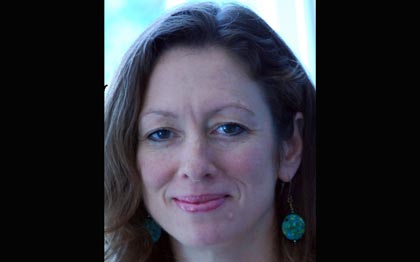Family planning is not a typical topic of conversation in churches. However, Susan Burton, director of Women's & Children's Advocacy at the General Board of Church and Society, and her team are urging United Methodists to talk about it. Promoting access to family-planning information and services is about saving lives, and stopping unnecessary death and injuries, they say.
Globally, far too many women and girls die or suffer lifetime disabilities due to lack of safe, voluntary family planning services. Also, this fosters child mortality. Increasing family planning services and education can stop these unnecessary deaths and injuries.
Funded by a grant to Church and Society from the United Nations Foundation, the Healthy Families, Healthy Planet (HFHP) initiative educates and advocates both within the church and beyond for funding, programs and policies to support access to maternal health and voluntary family-planning services around the globe. Additionally, HFHP is investing in changing social norms that deny women and girls access to life saving family-planning services.
 |
| Susan Burton |
Through the initiative, Church and Society equips and mobilizes United Methodists to advocate through grassroots organizing and trainings to educate, inspire and empower faith leaders to take on maternal health and family planning as issues in their congregations or communities.
What do issues around reproductive health and family planning have to do with faith? The answer for United Methodists is found in the Social Principles and The Book of Resolutions.
The Social Principles and resolutions address the ways United Methodists are called to engage with society, to live in relationship with God's creation and humanity, and to work toward societies in which each person's value is recognized, maintained and strengthened for all are created in the image of God.
"Access to family planning is often seen through the lens of healthcare access in the United States," Burton says. "But in those parts of the world where clinics and doctors who are able to provide guidance on family planning or contraception are not easily accessible, the option (for women) to make healthy decisions about their reproductive health is very limited or non-existent."
Journeying with those on the ground, creating intentional spaces for building women's leadership and looking at justice issues through a community-organizing lens are some of the goals of the Grassroots Organizing Team. Once local leaders have identified the needs, the Church and Society Grassroots Organizing Team helps build networks by investing in and creating more spaces to develop leaders who are equipped to serve and have a theological understanding.
Sophia Agtarap, freelance writer and communications consultant based in Nashville, Tennessee.
One of seven apportioned giving opportunities of The United Methodist Church, the World Service Fund is the financial lifeline to a long list of Christian mission and ministry throughout the denomination. Please encourage your leaders and congregations to support the World Service Fund apportionment at 100 percent.





